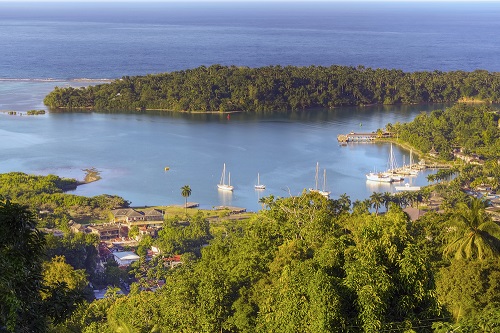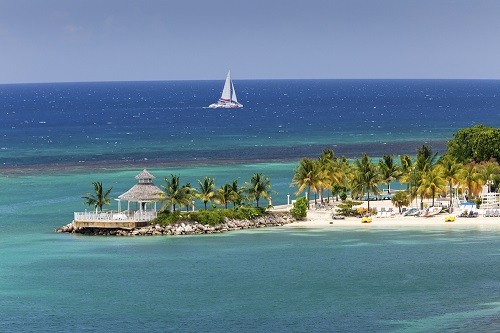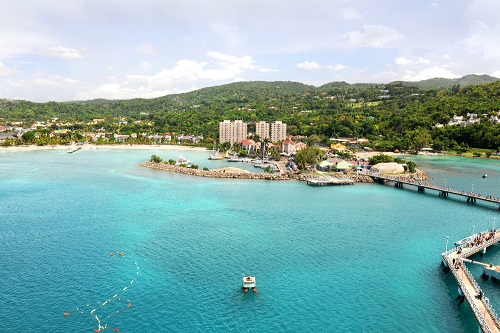Jamaica can be a challenging country in which to live and work. With high levels of poverty and crime, plus a healthcare system that is not yet up to the standards of the USA or the UK, there are significant mental health issues throughout the country. We will look at some of your options, as an expat, when it comes to safeguarding your mental health.The Jamaican Ministry of Health and Wellness launched a new campaign in 2019, at the Bellevue Hospital in Kingston, called ‘Speak Up, Speak Now.’ The campaign has three aims:
• Raise awareness about mental illness
• Initiate a national conversation on mental health in Jamaica
• Promote behavioural change to end the stigma against mental illness
The Ministry is of the opinion that attitudes in the country towards mental health tend to be old fashioned and often reactionary, and this approach needs to change.
Around one in every five young people in Jamaica suffers from mental illness. Depression most often occurs in the 15 to 24, 25 to 34 and over 75 age groups. Between 45 and 55 people commit suicide on the island every year. As part of the 2019 campaign, the health authorities have set up a Mental Health and Suicide Prevention Helpline – 888 NEW LIFE (639-5433). This will be staffed on a 24-hour basis by professional psychologists.
Healthcare involves a community engagement mental health (CEMH) model in Kingston, for mental health disorders. This model uses a task sharing methodology to deliver acute psychiatric treatment within a community setting and strives to treat patients at home.

Section (4) of the Mental Health Act (1999) allows for privately run group homes, termed mental nursing homes, but historically these have been expensive and have offered limited treatment options. Rehabilitation has been limited, and, when investigated, staff had little training in mental health issues or, for instance, in dealing with violent patients.
In effect, the nursing homes have borne a greater resemblance to holding facilities than to rehabilitation or treatment centres. Staff also expressed the attitude that mental health issues were incurable so there was little point in offering treatment. This is not an uncommon view on the island, and it is a cultural opinion that the health authorities are keen to change.
Kingston also has a parish psychiatrist and is currently training medical personnel in awareness of mental health issues. The Ministry of Health is also working on the training and implementation of healthy workplace models. Additionally, UNICEF are working in Jamaica on programmes to improve the health of young people.
The WHO has recently undertaken a report on mental health in Jamaica and concludes that the country can significantly reduce the health and economic burden of mental health conditions by investing in WHO-recommended interventions designed to improve mental health.
As an expat in Jamaica, it is probable that you will be accessing the private sector for any mental health needs, except in an emergency, in which case you should go immediately to the local hospital. You can contact the Jamaican Psychological Society (JamPsych), the professional body for psychologists and counsellors in Jamaica, for a list of their members. Its mission is to promote the development of professional psychologists and counsellors, and to uphold ethical standards, conduct, and respect for diversity in the practice of psychology and counselling across Jamaica. Full members of JamPsych are individuals who hold a master’s or doctoral degree in psychology or counselling.
You may also wish to contact your insurance provider to see whether they have information regarding local practitioners. Be aware that a number of psychotherapy centres in the country have a Christian orientation. Jamaica is a religious country, and some mental health provision is offered within a Christian context. Therapists, including psychotherapists and clinical psychologists, will deal with a range of issues, including:
• Depression
• Anxiety
• Family therapy
• Panic attacks
• Anger management
• Mood disorders
• Sex abuse
• Trauma
• Self-esteem
• Eating disorders
• Substance abuse
• Couples therapy
• Loss, including bereavement
• Difficulty dealing with transitions
• Relationship issues
• Social anxieties
• Academic difficulties
• Unexpected pregnancy
• Gender and identity issues

You may be offered more than one session in order to address any issues. Therapists will use a range of modalities, including:
• Cognitive behavioural therapy (CBT)
• Counselling
• Systemic therapy (family therapy)
• Mindfulness
If you find it difficult to access mental health care on the ground, be aware that you may also be able to sign up with a therapist – including one in your home country – online. An increasing number of psychotherapists have gone digital and offer counselling sessions over platforms such as Skype.
In addition to accessing mental health services, whether in the public, semi-public or private sector, you can take care to safeguard your mental health by getting plenty of exercise, eating healthily, and taking care not to drink too much alcohol. Also, if you are working away from family and friends, keep in touch with them, even if only by digital means, as isolation can be a factor in mental health problems. Some of the tensions and challenges in Jamaica can contribute to psychological problems in both locals and expats alike.
It is also worthwhile reading up on the law with regard to mental health discrimination, in case you encounter any difficulties in your workplace. However, bear in mind that anti-discrimination laws in Jamaica are not currently well developed.

